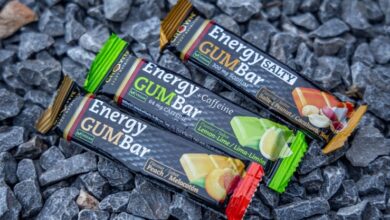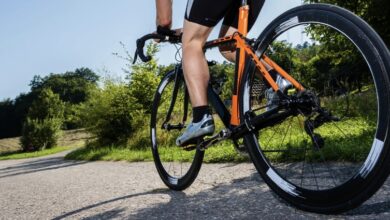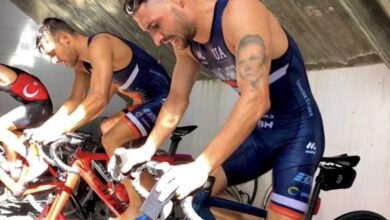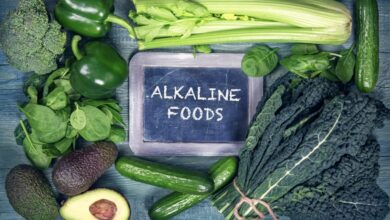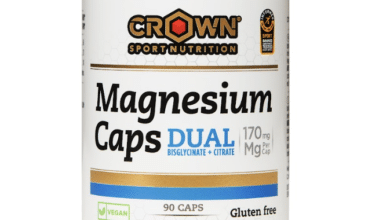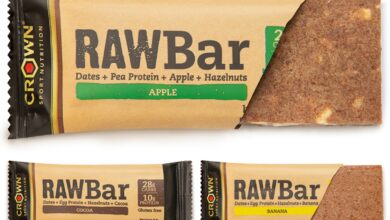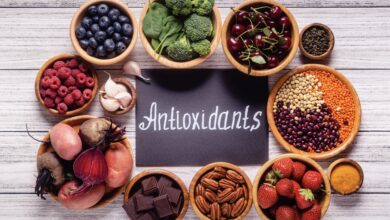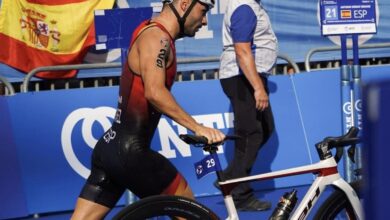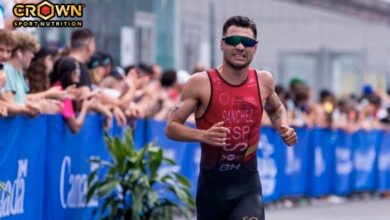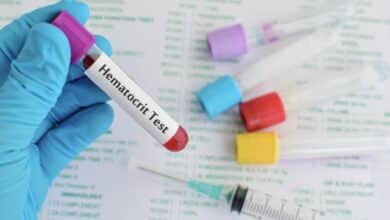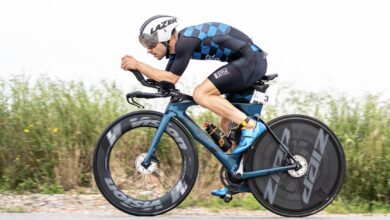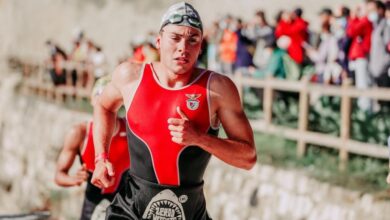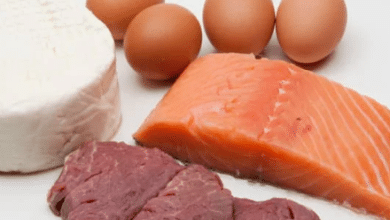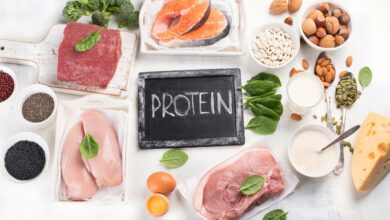Gastrointestinal problems during exercise: a guide to prevention

Performing physical exercise at high intensity and at a high level leads to acute consequences at the gastrointestinal level.
Previous studies have observed that between 30-50% of athletes often experience gastrointestinal problems on a regular basis [1].
This prevalence is much higher in aerobic disciplines, where it has been observed that between 30-90% of athletes experience some gastrointestinal symptoms, being The prevalence is higher with greater intensity and duration of physical exercise. [2].
The symptom The most common are nausea, regurgitation, pain, diarrhea [3], and even stomach pain [4].
Anecdotally, at the 2012 Olympic Games, gastrointestinal problems were the second most common problem in athletes, where specifically a total of 123 athletes (16%) presented vomiting or diarrhea [5].
Why do these gastrointestinal problems appear during exercise?
There really is no single cause that determines the appearance of these gastrointestinal problems, since it is a multi-causal condition. Among all the possible causes we could find [1–3]:
- The realization of one's own exercise, especially at high intensity and duration, which causes physiological stress inducing a greater risk of these problems.
- Situations of high temperature and hyperthermia that aggravate the gastrointestinal stress caused by exercise.
- Performing exercise in altitude situations.
- Psychobiological factors such as nerves, stress or anxiety, both chronic and acute, before a sporting event.
- And of course, nutritional causes such as, for example: pre-exercise intakes high in fat, protein and fiber, intake of hyperosmolar solutions during exercise, situations of dehydration or hyponatremia, and the intake of carbohydrates such as FODMAPS before exercise or single carbohydrate sources during exercise. exercise.
What are the consequences of these gastrointestinal problems?
The consequences of these gastrointestinal problems can range from mild consequences such as discomfort or discomfort, to gastrointestinal alterations that lead to severe clinical symptoms (bleeding, inflammation or erosion of the intestinal mucosa, etc.) [2,6].
Furthermore, the appearance of this symptomatology triggers a decrease in performance. For example, its presence during training affects recovery and workload, while its appearance during competitive events leads to competitive withdrawals [6–8].
Finally, these symptoms affect the concentration of the athlete, decreasing performance and also potentially triggering psychobiological consequences such as stress, anxiety or emotional problems [9].
Simple guide for its prevention and treatment
As we have previously mentioned, the causes are multifactorial, therefore, its approach should also be multifactorial trying to reduce all potential risk factors for these problems. The main guidelines are [1–3]:
- Avoid ingest non-steroidal anti-inflammatory drugs (e.g. aspirin) before exercise and days before competitive events.
- Keep a property pattern of hydration before and during exercise, without forgetting the corresponding intake of sodium
- Carry out an appropriate digestive training before competitive events. For example: do not try quantities and types of foods on the day of the competition, avoid trying new supplements or supplies that same day, etc.
- In the event that they are made intakes Intra-training or intra-competition use different types of carbohydrates and not just one type.
- Avoid ingest meals very rich in fat, protein (excess) and fiber before exercise and competitive event.
- Avoid potentially bothersome foods such as: spicy foods, raw vegetables (garlic, onion, peppers), legumes, fried foods, very spicy foods (e.g. curries), and even dairy products (according to individual tolerance).
- Carry out an adequate management of the Stress y anxiety both chronic and pre-competitive [9].
- Por último, la supplementation with glutamine (20-50g 2h before exercise), has been shown to improve certain symptoms of gastrointestinal distress [10,11], and may be a useful strategy to prevent the appearance of gastrointestinal problems.
Conclusions
In summary, the appearance of gastrointestinal symptoms is common in athletes. Therefore, due to its multifactorial causes, the nutritional approach and the rest of the factors can have beneficial effects on the health and performance of athletes.
Lucas Jurado Fasoli – Doctor in Biomedicine (UGR). Dietician-Nutritionist. Postdoctoral researcher at the Joint University Sports and Health Institute and Department of Physiology, University of Granada.
THE BRAND
Crown Sport Nutrition is a Spanish brand specializing in high performance. First Spanish company with Informed Sport anti-doping certification, they have carried out numerous scientific studies with several articles published in JCR Q1 and Q2 that endorse several of their products and their philosophy. They have science-based formulations, raw materials and premium manufacturing.
They collaborate with international universities and institutions such as U. Greenwich, UFV and ESSNA and it is used by top international athletes, teams and federations.
They are currently expanding internationally in European markets, the Middle East and Latin America.
References
[1] Jeukendrup AE. Training the gut for athletes. Sports Medicine 2017;47:101–10.
[2] de Oliveira EP, Burini RC, Jeukendrup A. Gastrointestinal complaints during exercise: prevalence, etiology, and nutritional recommendations. Sports Medicine 2014;44:79–85.
[3] Costa RJS, Snipe RMJ, Kitic CM, Gibson PR. Systematic review: exercise-induced gastrointestinal syndrome—implications for health and intestinal disease. Aliment Pharmacol Ther 2017;46:246–65.
[4] Parnell JA, Wagner-Jones K, Madden RF, Erdman KA. Dietary restrictions in endurance runners to mitigate exercise-induced gastrointestinal symptoms. J Int Soc Sports Nutr 2020;17:32.
[5] Engebretsen L, Soligard T, Steffen K, Alonso JM, Aubry M, Budgett R, et al. Sports injuries and illnesses during the London Summer Olympic Games 2012. Br J Sports Med 2013;47:407–14.
[6] Gaskell SK, Rauch CE, Costa RJS. Gastrointestinal assessment and therapeutic intervention for the management of exercise-associated gastrointestinal symptoms: a case series translational and professional practice approach. Front Physiol 2021;12:1392.
[7] Jeukendrup AE, Vet-Joop K, Sturk A, Stegen J, Senden J, Saris WHM, et al. Relationship between gastro-intestinal complaints and endotoxaemia, cytokine release and the acute-phase reaction during and after a long-distance triathlon in highly trained men. Clin Sci 2000;98:47–55.
[8] Costa RJS, Gaskell SK, McCubbin AJ, Snipe RMJ. Exertional-heat stress-associated gastrointestinal perturbations during Olympic sports: Management strategies for athletes preparing and competing in the 2020 Tokyo Olympic Games. Temperature 2020;7:58–88.
[9] Wilson PB. The psychobiological etiology of gastrointestinal distress in sport: a review. J Clin Gastroenterol 2020;54:297–304.
[10] Pugh JN, Sage S, Hutson M, Doran DA, Fleming SC, Highton J, et al. Glutamine supplementation reduces markers of intestinal permeability during running in the heat in a dose-dependent manner. Eur J Appl Physiol 2017;117:2569–77.
[11] Zuhl MN, Lanphere KR, Kravitz L, Mermier CM, Schneider S, Dokladny K, et al. Effects of oral glutamine supplementation on exercise-induced gastrointestinal permeability and tight junction protein expression. J Appl Physiol 2014;116:183–91.
There are no previous results.







